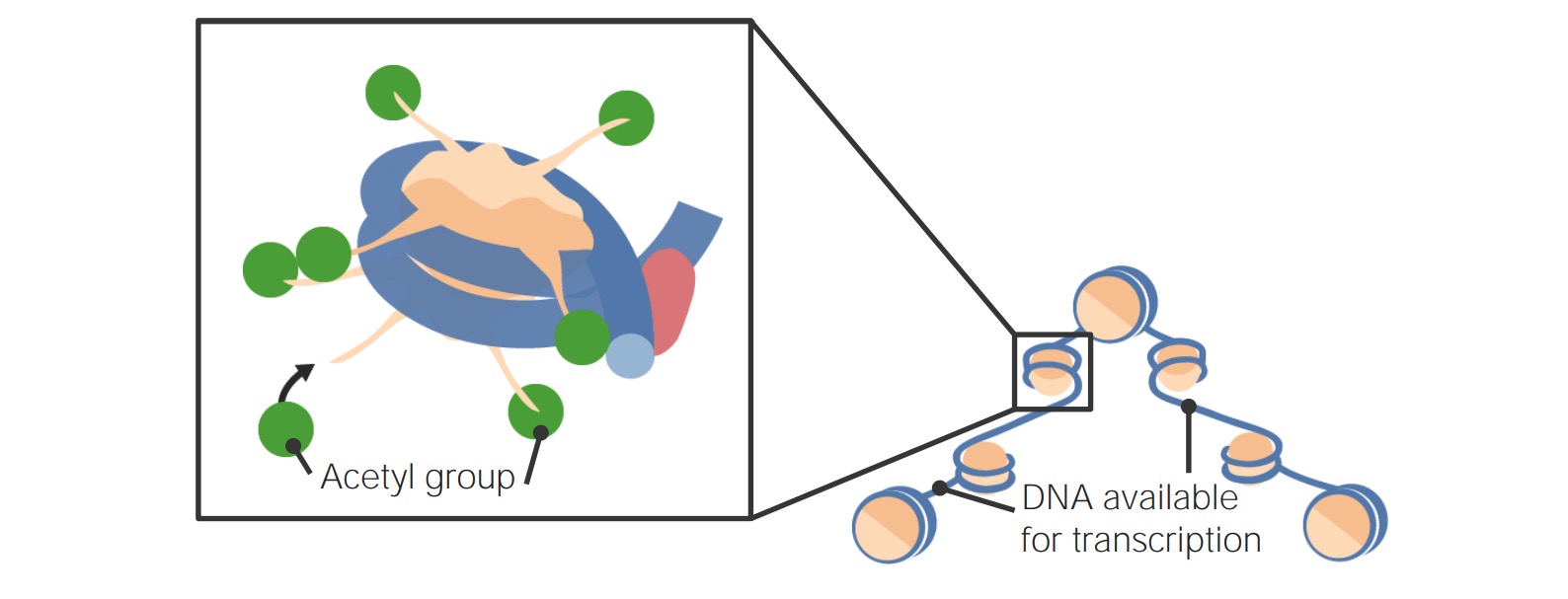Playlist
Show Playlist
Hide Playlist
Review: Epigenetic Regulation, Single Nucleotide Polymorphisms, and Cytogenetics
-
Slides 02 Cell and Molecular Biology IntroductionToMedicalGenetics.pdf
-
Download Lecture Overview
00:00 We’ve also spent time looking at epigenetic regulation. Epigenetic is meaning above the genomes, so anything that’s not actually in the DNA itself that changes gene expression. Technically, epigenetic changes are heritable changes. But for the purposes of this course, we’re going to stick with the three main changes that can be heritable. Those are DNA methylation, histone modification, and then looking at various histone variants. So, we’ll see modifications to histone tails as well as we can see histone variants that might tag or label our beads on a string as being something that we can translate. So keep in mind that when the DNA is wound up around these histone cores, they are not expressible because all of the machinery that needs to attach to the DNA to transcribe the gene in order for it to be translated into protein is unavailable. 01:10 So it can’t get into that DNA. The other thing is adding different methyl groups. We know that makes it unreadable too as well as looking at these changes in histone tails that will either grip on to the DNA more tightly or let go of the DNA more and allow it to be accessible to all the machinery of transcription. 01:34 So, we will visit some of these epigenetic regulatory mechanisms throughout this course as we discuss some of the changes that happen in genetics. Something we also spent some time with were single nucleotide polymorphisms and looking at things like this which is an image from HapMap that you may be familiar with from our last lecture. HapMap is a place where we can record all the different haplotypes or single nucleotide polymorphisms that we see in individuals. Often, these are associated with genetic disorders. 02:18 So, we’ll call them genetic markers. Although they’re not actually the gene itself, they mark that that gene could be slightly downstream. For example, we’ve previously looked at this one and its association with breast cancer. 02:31 So, it’s not important that it’s that. We’re just showing you here that the T could be an A or it could be a T. 02:38 Whether you have one variant of that or another might mark your predisposition for some genetic anomaly. 02:44 So, other things that we’ve looked at are cytogenetics and inheritance patterns and chromosome analysis. 02:52 We’ll dig a little deeper into those in this course because obviously in medical genetics, it’s not about the foundation or the root of it, it’s the fact that we are studying the number and structure of chromosomes. We talked about that being sort of the pre-DNA technology’s way of doing medical genetics. Of course, everything is going to springboard off of that as we learn more about the specific sequences and the locations and expression times of genes.
About the Lecture
The lecture Review: Epigenetic Regulation, Single Nucleotide Polymorphisms, and Cytogenetics by Georgina Cornwall, PhD is from the course Introduction to Medical Genetics.
Included Quiz Questions
Which of the following statements regarding histone modification is FALSE?
- Winding DNA around histones makes it more expressible
- Histone modifications are heritable.
- Methylation of histone is a type of histone modification.
- Acetylation of histone is a type of histone modification.
- Histone modification is a post-translational modification.
Which of the following best describes epigenetics?
- Heritable changes in gene expression that do not involve the underlying DNA sequencing
- Heritable changes caused by point mutations in the DNA sequence
- Heritable changes caused by chromosomes crossing over in cell replication
- Heritable changes in gene expression caused by trinucleotide repeats
- Heritable changes in the DNA sequence caused by non-sense mutations
Customer reviews
5,0 of 5 stars
| 5 Stars |
|
1 |
| 4 Stars |
|
0 |
| 3 Stars |
|
0 |
| 2 Stars |
|
0 |
| 1 Star |
|
0 |
Ggghh hhjj hjkkllj jjkpppo hjk hjkk hukkk huiook hhjkk hhjjj jkkkkk uikkkkkk hkkkj




